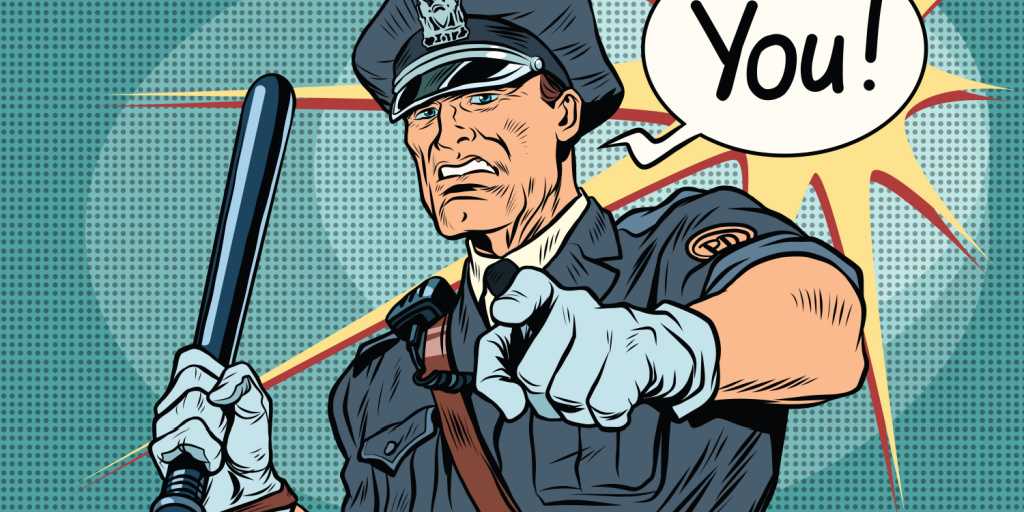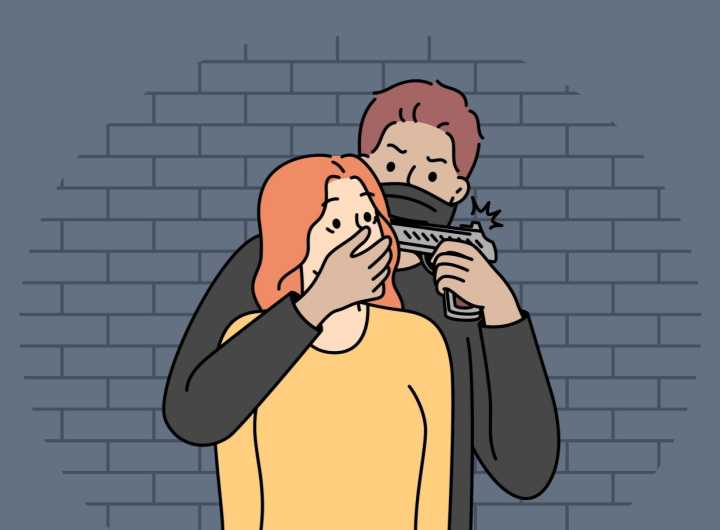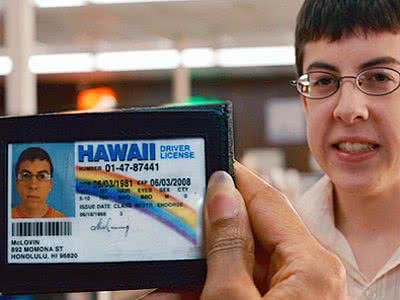Students: How a Small Crime Could Affect you the Rest of Your Life
(Part I: Shoplifting)
College. A place for education, both in the books and in life. It’s a time when high school graduates leave home and turn into emancipated college freshmen. You’re young. For some of you, it’s your first time away from home, even if going to a school close to home. You suddenly find yourself on your own. You have to make decisions for yourself; there’s no parent bugging you when to be home or where you can go or what you can and cannot do.
You.Are.FREE!
Most of you will use this newfound freedom to harness the richness and really good things that college life has to offer, but far too often many of you might get caught up in the moment and do so without too much thought given to the consequences. This blog series is about some of those college life experiences that have consequences that many students fail to consider until it is too late. As you know, many college life experiences include “experimentation” of some sort, and this can be, knowingly or unknowingly, a misdemeanor or felony. I represent a fairly large number of university students, including undergraduates, PhD students, medical students, and law students. Unfortunately, I have witnessed many of their lives changed. Thus, the reason for this blog series.
I am here to share with you some illustrative stories that are common among college students and young professionals. This blog series, first and foremost, serves as an alert to you, a warning of sorts. Have fun, but be cautious and try to think before you act. Most common crimes I have dealt with include marijuana possession, fake IDs, alcohol, and driving offenses such as DUI, occasionally shoplifting, and unfortunately but all too often, assault or domestic violence, which almost always involves alcohol. Because it is one of the least likely scenarios, I will start this series with a discussion on shoplifting. Subsequent blogs associated with this series will address each of the above-mentioned misdemeanors and felonies and their specific impact on students and young professionals.
The Case of the Shoplifting Physiology Major
This kid had everything going for him. A pre-med junior, he was also salutatorian of his high school class and held a nearly perfect 4.0 undergraduate GPA. In January 2010, he received a prestigious summer research internship at a major teaching hospital in New York. He was set to begin this internship a few days after finals and had already secured an apartment for the summer in Tribeca.
In March 2010, however, he was at a bookstore. He was browsing logo sweatshirts, and suddenly he snatched the sweatshirt, the price of which was $40.00, and put it in his backpack. Now, this kid thinks he scored; he’s pretty happy about it. But I am like: What were you thinking?
The bookstore had cameras in place, which neatly videotaped his whole act of passion to score a $40.00 logo sweatshirt.
Life for him just got a little unpredictable.
He was charged with “shoplifting,” a Class One misdemeanor. He was summoned to criminal court. He hired a local criminal defense lawyer, but the charges remained.
It didn’t occur to him initially that this run-in with the law would affect him in any other way, until he opened his mail one day. At the beginning of May, right when he was studying for his physiology and biochemistry and differential equations finals, he received a letter from the New York teaching hospital. It said, to summarize, that the New York teaching hospital had been happy, “honored,” to accept him, but ran a “final” background check at the end of April. The shoplifting charge appeared. It is unclear from the letter if they were upset that the student hadn’t affirmatively disclosed to them once he’d been cited (the application he had originally filled out in October had required the student to list any criminal arrests, including citations), as that was mentioned only in passing.
What was clear from the letter, however, was that the teaching hospital had a “strict” policy. Because he’d be working with patients in a clinical setting, it was imperative that he pass a background check. Shoplifting, to them, is what is often termed as a “crime of dishonesty,” which is a reflection of character.
Unfortunately, therefore, even without a conviction, the teaching hospital would have to rescind its offer of the summer research internship. They wished him luck. They knew what this kid would soon find out, and that is no other teaching hospital would likely offer him an internship with shoplifting on his record. Without an internship, his pre-med status quickly became something akin to murky water.
And know this, too, shoplifting as a crime of dishonesty can prevent you from getting not just internships, but jobs in general and your career in particular. Also, if it’s a certification or license you need to practice your desired profession, you are likely to run into obstacles. It may seem like a small act at the time, but it can transmogrify into something that can have a surprisingly negative impact on the direction of your life outside of college.
Tips to Stay out of Trouble
- Don’t shoplift; and
- Remember that most people who get caught shoplifting are not poor, and are not characterized by a specific age, gender, or race.
The best way to avoid shoplifting is to understand why people shoplift in the first place. The National Association for Shoplifting Prevention (NASP) analyzed several studies, and from that analysis has summarized two primary reasons:
- Recurrent failure to resist impulses to steal objects that are not needed for personal use or their monetary value; or
- Pleasure or relief at the time of committing the theft;
NASP suggests that “[t]oday, kleptomania is considered far more prevalent than originally believed.” The first reason often requires professional help while the second reason requires self-discipline. Regardless of the reason, you can go to NASP’s website where you can find a wealth of resources, including self-help opportunities. Habitual shoplifters, those who cannot control their urge to shoplift, need professional help. But for those of you who might shoplift for the mere cheap thrill: Don’t do it.
Tips if You Shoplift & Get Caught
Now, if you do shoplift, and you do get caught, you need to immediately contact a reputable defense criminal attorney who is experienced and knowledgeable. As I said above, this kid had hired a local criminal defense attorney, but that attorney wasn’t able to help him in a way that was beneficial to his future success as a pre-med student. You want someone who knows the system, knows the players and has the capability to get matters resolved favorably. In cases where you already have a conviction, there may be measures a criminal defense attorney can take to clean your record. But again, you need an experienced, reputable attorney to get the job done.
Conclusion
I have many, many more case examples to give you, but at this point, I will say this: students tend to get charged with “minor crimes,” but they don’t realize how serious they are. In the future, I will write more installments of these blogs and explain in more detail precisely how these “small crimes” have big consequences for students and young professionals.
References
National Association for Shoplifting Prevention. (2014). Psychological Studies. http://www.shopliftingprevention.org/what-we-do/learning-resource-center/psychological-studies/.
Recommended Articles

Arizona’s new sealing statute is a powerful way for people who have been charged or convicted of many common offenses, to be able to say “no” in many instances.

In Arizona, “Aggravated Assault” charged under ARS § 13-1204 is a Class Four Felony, and in some cases with mandatory prison.

DUI or domestic violence police misconduct even if not resulting in grievous misfortune can sometimes provide a helpful remedy for the criminally accused.

people are surprised by how outsized the consequences some misdemeanor convictions can be. collateral consequences—meaning all those hidden consequences.

For thirty years two federal laws prohibited all those convicted of misdemeanor domestic violence offenses from ever possessing firearms.

About Michael Harwin
Michael’s skill and experience have been recognized repeatedly. He holds an A-V 5/5 preeminent rating by Martindale Hubbell. He has been named one of the top lawyers in Arizona by Southwest Superlawyers, and one of the best lawyers in Tucson by Tucson Lifestyle Magazine. He also has been named one of the best lawyers in the United States by BestofUS.com , and given the highest rating possible by AVVO, 10/10 Superb. Amazon Books


